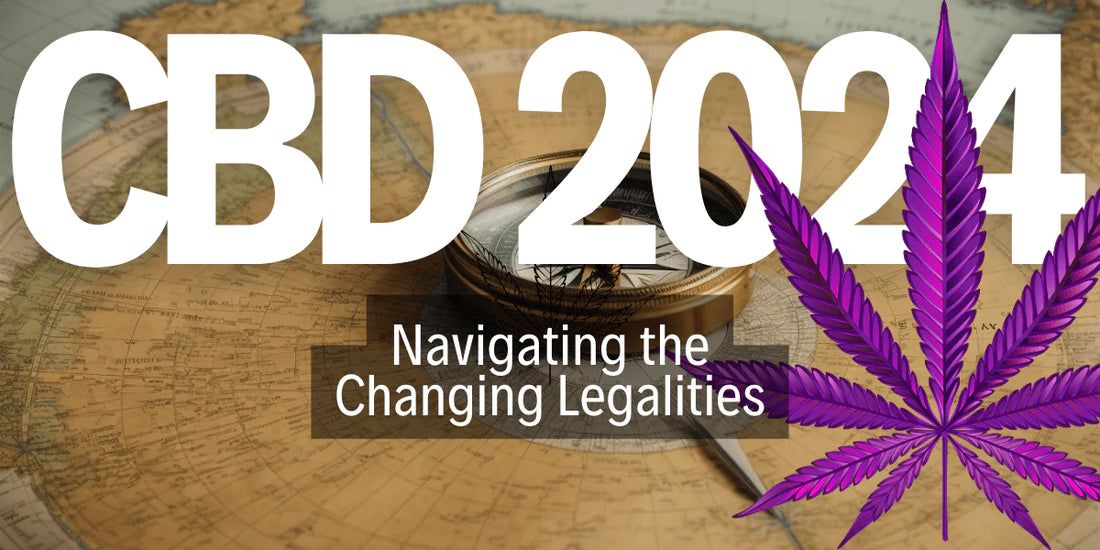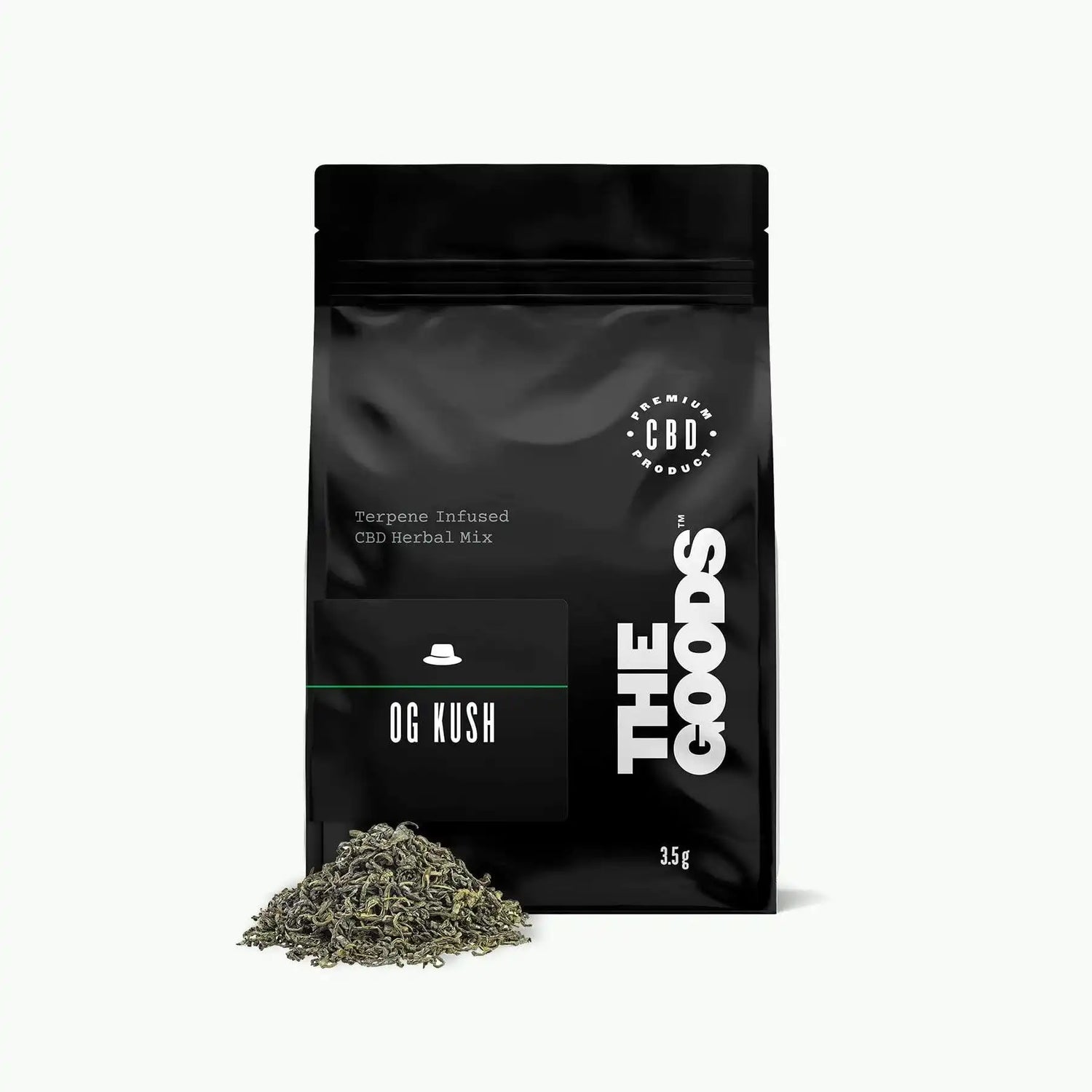
The Ultimate Guide to CBD: What You Need to Know in 2024
Chapter 1: Regulatory Updates and Legalization Trends
2023 marked a pivotal year for the CBD industry, witnessing significant shifts in regulatory frameworks and legalization trends around the world. In the United States, the passage of the Hemp Farming Act of 2023 provided a clear legal pathway for the cultivation, production, and sale of hemp-derived CBD products nationwide. However, challenges persisted as regulatory agencies grappled with issues such as CBD dosage, labeling requirements, and the delineation between hemp-derived CBD and cannabis-derived CBD products.
Meanwhile, in Europe, regulatory harmonization efforts aimed to streamline CBD regulations across member states, facilitating cross-border trade and ensuring consumer safety. The European Union's Novel Food Regulation continued to impact the CBD industry, requiring CBD manufacturers to obtain novel food authorization for their products. This regulatory hurdle prompted industry stakeholders to advocate for clearer guidelines and standardized testing protocols to support compliance efforts.
In Asia, several countries made strides towards CBD legalization, driven by growing consumer demand and shifting attitudes towards cannabis-derived products. Thailand emerged as a regional leader in cannabis reform, legalizing medical cannabis and paving the way for a burgeoning CBD market. However, regulatory uncertainty persisted in other parts of Asia, hindering the widespread adoption of CBD products in these markets.
Looking ahead to 2024, stakeholders anticipate further regulatory clarity and harmonization efforts, as policymakers strive to balance consumer access with public health and safety considerations. Continued advocacy, industry collaboration, and engagement with regulatory agencies will be essential to shape a regulatory framework that fosters innovation, promotes consumer confidence, and ensures the responsible growth of the CBD industry.
Chapter 2: Advances in Research and Scientific Discoveries
Throughout 2023, the CBD research landscape witnessed significant advancements, shedding light on the therapeutic potential of cannabidiol and its role in promoting health and wellness. Studies exploring CBD's mechanisms of action revealed its multifaceted interactions with the endocannabinoid system and other physiological pathways, elucidating its anti-inflammatory, analgesic, anxiolytic, and neuroprotective properties.
Clinical trials investigating CBD's efficacy for various health conditions yielded promising results, with evidence supporting its use as an adjunct therapy for epilepsy, chronic pain, anxiety disorders, and sleep disturbances. Additionally, emerging research highlighted the potential synergies between CBD and other cannabinoids, terpenes, and botanical compounds, paving the way for novel formulations and therapeutic combinations.
Innovation in drug delivery methods further expanded the possibilities for CBD administration, with advancements in nanoencapsulation, liposomal technology, and transdermal patches enhancing bioavailability and efficacy. Meanwhile, preclinical studies exploring the therapeutic applications of minor cannabinoids such as CBG (cannabigerol) and CBN (cannabinol) offered new insights into the entourage effect and the synergistic interactions between cannabis compounds.
Looking forward, researchers anticipate continued exploration of CBD's therapeutic potential across a wide range of health conditions, supported by robust clinical trials, mechanistic studies, and real-world evidence. Collaboration between academia, industry, and regulatory agencies will be essential to drive innovation, validate claims, and unlock the full therapeutic potential of CBD for the benefit of patients and consumers worldwide.
Chapter 3: Consumer Trends and Product Innovation
As consumer awareness and acceptance of CBD continue to grow, the CBD market has witnessed a proliferation of products and a diversification of consumption methods. In 2023, consumers gravitated towards products that offered convenience, efficacy, and personalized experiences, driving innovation and differentiation within the industry.
One notable trend in 2023 was the rise of functional CBD products tailored to specific wellness needs, such as stress relief, sleep support, and immune system enhancement. Brands introduced targeted formulations featuring synergistic blends of CBD, botanical extracts, vitamins, and adaptogens, catering to consumers seeking holistic solutions for health and well-being.
Another key development was the expansion of the CBD-infused beverage market, with an array of CBD-infused teas, coffees, waters, and functional beverages hitting the shelves. These beverages offered consumers a convenient and enjoyable way to incorporate CBD into their daily routines, whether as a morning pick-me-up or a post-workout refreshment.
Innovation in product formats also played a significant role in driving consumer interest and engagement. CBD-infused skincare products, including serums, creams, and masks, gained popularity for their potential anti-inflammatory and antioxidant properties, appealing to beauty enthusiasts seeking natural and holistic skincare solutions.
Looking ahead to 2024, industry observers anticipate further product innovation and category expansion, driven by evolving consumer preferences and emerging market trends. Brands will continue to explore novel formulations, delivery methods, and ingredient combinations to differentiate themselves in a crowded market and meet the diverse needs of consumers worldwide.
Chapter 4: Quality Assurance and Transparency Standards
As the CBD market matures and consumer expectations evolve, there has been a heightened focus on quality assurance and transparency within the industry. In 2023, stakeholders across the supply chain prioritized initiatives to enhance product quality, safety, and consistency, aiming to build trust and credibility with consumers.
One key area of focus was third-party testing and certification programs, which emerged as essential tools for verifying product quality and authenticity. Brands increasingly invested in rigorous testing protocols to ensure that their products met stringent quality standards for potency, purity, and contaminants, with many opting to display third-party lab reports prominently on their packaging and websites.
Transparency in labeling and marketing also gained prominence in 2023, as consumers demanded clear and accurate information about CBD products. Brands adopted transparent labeling practices, providing detailed information about product ingredients, sourcing, extraction methods, and third-party testing results to empower consumers to make informed purchasing decisions.
Industry associations and advocacy groups played a pivotal role in driving quality assurance initiatives and promoting best practices within the CBD industry. Collaborative efforts to establish industry standards, certification programs, and self-regulatory guidelines helped foster a culture of quality and accountability across the supply chain.
Looking forward, stakeholders anticipate continued momentum in quality assurance and transparency efforts, with a focus on harmonizing standards, enhancing testing methodologies, and educating consumers about the importance of product quality and safety. By prioritizing transparency, accountability, and consumer trust, the CBD industry can continue to thrive and fulfill its potential as a source of health and wellness for consumers worldwide.
Navigating the Evolving CBD Landscape
As we conclude our journey through the dynamic landscape of CBD in 2024, it's clear that the industry has undergone remarkable transformation and growth. From regulatory advancements to scientific breakthroughs, consumer trends, and quality assurance initiatives, 2023 laid the foundation for a more mature, responsible, and innovative CBD industry.
Looking ahead, stakeholders must remain vigilant and adaptable in the face of ongoing challenges and opportunities. Regulatory uncertainty, market saturation, and consumer skepticism continue to pose challenges, underscoring the need for continued advocacy, collaboration, and education within the industry.
At the same time, the potential for CBD to positively impact health, wellness, and quality of life remains undeniable. With each scientific discovery, product innovation, and regulatory milestone, we inch closer to unlocking the full potential of this remarkable compound and harnessing its benefits for individuals worldwide.
As consumers, industry stakeholders, and advocates, let us embrace the opportunities that lie ahead and work together to shape a future where CBD is recognized as a force for good—a catalyst for holistic wellness, a driver of innovation, and a symbol of hope for a healthier, happier tomorrow.
Together, let us navigate the evolving landscape of CBD with courage, compassion, and conviction, ensuring that the promise of this remarkable plant is realized for generations to come.

